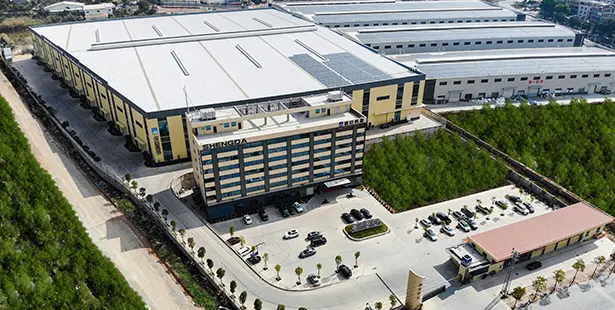The Brazilian market for sand casting molding machines has shown significant growth in recent years, driven by automotive industry expansion, green transition policies, and technological exports from Chinese enterprises. Key trends include:
Automotive Industry-Driven Equipment Upgrades
Core Demand Sectors
The automotive industry dominates Brazil’s casting applications, with strong demand for engine blocks and transmission housings directly driving updates to casting equipment. Plans to boost Brazil’s auto production to 1.2 million vehicles by 2026 will further stimulate demand for automated molding machines.
Lightweight Material Applications
New energy vehicles (NEVs) are increasing demand for high-strength aluminum/magnesium sand casting, particularly for integrated front cabin modules, relying on advanced sand-casting equipment.
Green Policies Accelerating Technological Iteration
Mandatory Environmental Standards
Brazil’s “New Industrial Plan” mandates 100% IoT integration for casting equipment, requiring upgrades to closed-loop sand recycling systems for full-process monitoring. Vale’s eco-friendly sand (from iron ore tailings), projected to sell 2.1 million tons in 2024, boosts demand for sand regeneration equipment.
Low-Carbon Smelting Integration
Government investment of BRL 21 billion in the “National Hydrogen Program” necessitates low-carbon equipment like green hydrogen smelting furnaces. Innovations such as sand 3D printing coupled with hydrogen smelting are gaining traction.
Surge in Intelligent Equipment Demand
Automated Systems Replacing Labor
Brazilian foundries are rapidly adopting fully automated molding lines (e.g., jolt-squeeze + robotic core assembly), improving efficiency by >40%. Over half of the 280 die-casting machines contracted by Dongguan manufacturers for delivery to Brazil in 2025 are automated sand-casting units.
Breakthroughs in Large/Complex Part Manufacturing
3-meter-scale sand 3D printers are favored for mold-free production of 15-ton mill components, reducing Brazil’s reliance on imported heavy equipment castings.
Dominance of Chinese Equipment
Cost-Performance Advantage
Chinese casting machinery’s market share in Brazil rose from 18% to 33%, surpassing German and American suppliers. Dongguan enterprises secured $160 million orders (60% sand-casting equipment) in a single trade fair. At Brazil’s 2024 Foundry Expo, Chinese exhibitors comprised >30% of participants, with sand treatment/recycling equipment as procurement priorities.
Localized Service Enhancement
Companies like XCMG Brazil established smart manufacturing bases offering Portuguese interfaces and real-time remote maintenance, slashing equipment delivery cycles from 3 months to 45 days.
Future Demand Directions
Sand Regeneration Systems: Policy mandates 90% utilization rate for foundry solid waste by 2026, widening demand for sand recycling solutions.
Flexible Production Lines: Customized small-batch trends drive robotic sand-printing adoption (e.g., open-architecture robotic-arm 3D printing).
Hydrogen-Integrated Casting: Green hydrogen steelmaking projects spur demand for high-temperature-resistant sands (e.g., ceramic-enhanced variants).
Brazil’s sand casting molding machine market reflects a “green-intelligent solutions dominate, Chinese tech leads” landscape. The 2026 FENAF Foundry Expo is expected to spotlight sand regeneration and smart-casting solutions, unlocking further demand potential.
Quanzhou Juneng Machinery Co.,Ltd. is a subsidiary of Shengda Machinery Co.,Ltd. specializing in casting equipment.A high-tech R&D enterprise that has long been engaged in the development and production of casting equipment, automatic molding machines,and casting assembly lines.
If you need a servo molding machine, you can contact us through the following contact information:
Sales Manager : zoe
E-mail : zoe@junengmachine.com
Telephone : +86 13030998585
Post time: Jul-10-2025

